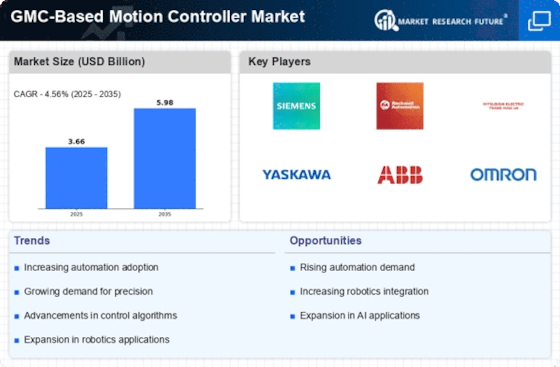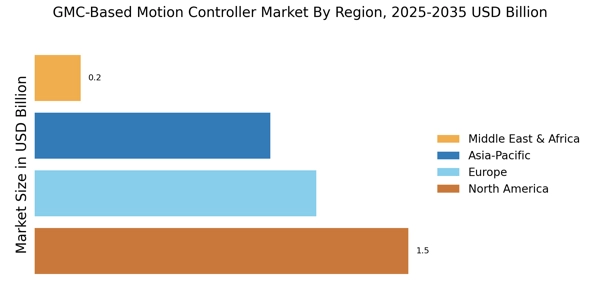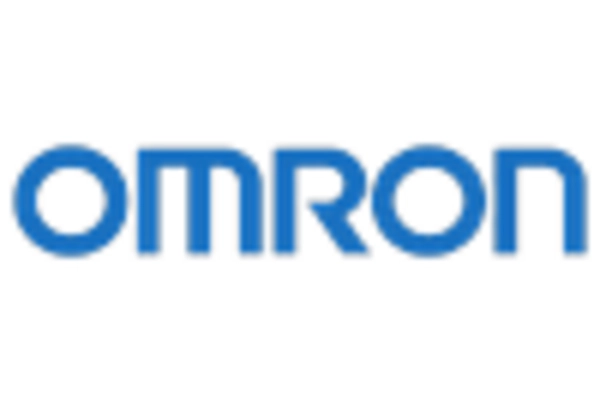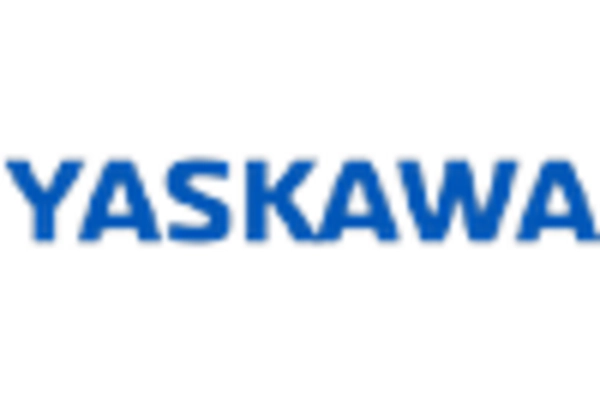Rising Demand for Automation
The GMC-Based Motion Controller Market is experiencing a notable surge in demand for automation across various sectors, including manufacturing, robotics, and logistics. This trend is driven by the need for enhanced efficiency and precision in operations. As industries increasingly adopt automated solutions, the market for GMC-based motion controllers is projected to grow significantly. According to recent data, the automation sector is expected to expand at a compound annual growth rate (CAGR) of approximately 10% over the next five years. This growth is likely to propel the GMC-Based Motion Controller Market, as these controllers are integral to the functioning of automated systems, ensuring accurate motion control and synchronization.
Emergence of Smart Manufacturing
The concept of smart manufacturing is gaining traction, characterized by the integration of IoT, big data, and advanced analytics into production processes. The GMC-Based Motion Controller Market stands to benefit from this shift, as smart manufacturing relies heavily on sophisticated motion control systems for real-time data processing and automation. The implementation of GMC-based controllers enables manufacturers to optimize their operations, reduce downtime, and enhance overall productivity. Current projections indicate that the smart manufacturing market could reach a valuation of 500 billion by 2025, suggesting a robust growth trajectory for the GMC-Based Motion Controller Market. As more companies adopt smart manufacturing practices, the demand for advanced motion control solutions is likely to rise.
Advancements in Robotics Technology
Technological advancements in robotics are playing a crucial role in shaping the GMC-Based Motion Controller Market. Innovations in robotic systems, such as collaborative robots (cobots) and autonomous mobile robots (AMRs), necessitate sophisticated motion control solutions. The integration of GMC-based controllers enhances the performance and capabilities of these robotic systems, allowing for more complex tasks and improved operational efficiency. Market data indicates that the robotics sector is projected to reach a valuation of over 200 billion by 2026, further driving the demand for GMC-based motion controllers. As robotics technology continues to evolve, the GMC-Based Motion Controller Market is likely to benefit from increased adoption and investment.
Growth in Electric Vehicle Production
The GMC-Based Motion Controller Market is also influenced by the burgeoning electric vehicle (EV) sector. As manufacturers ramp up production to meet the rising demand for EVs, the need for precise motion control systems becomes paramount. GMC-based motion controllers are essential for various applications within electric vehicles, including motor control and battery management systems. Recent statistics suggest that the EV market is expected to grow at a CAGR of around 22% through 2030, indicating a substantial opportunity for the GMC-Based Motion Controller Market. This growth is likely to stimulate innovation and development within the motion control sector, as manufacturers seek to enhance the performance and efficiency of electric vehicles.
Increased Focus on Precision Engineering
Precision engineering is becoming increasingly vital in various industries, including aerospace, medical devices, and semiconductor manufacturing. The GMC-Based Motion Controller Market is benefiting from this trend, as these controllers provide the necessary accuracy and reliability for high-precision applications. The demand for precision-engineered products is expected to rise, driven by advancements in technology and the need for higher quality standards. Market analysis suggests that sectors requiring precision engineering are projected to grow at a rate of 8% annually, which could significantly impact the GMC-Based Motion Controller Market. As industries prioritize precision, the adoption of GMC-based motion controllers is likely to increase.
















